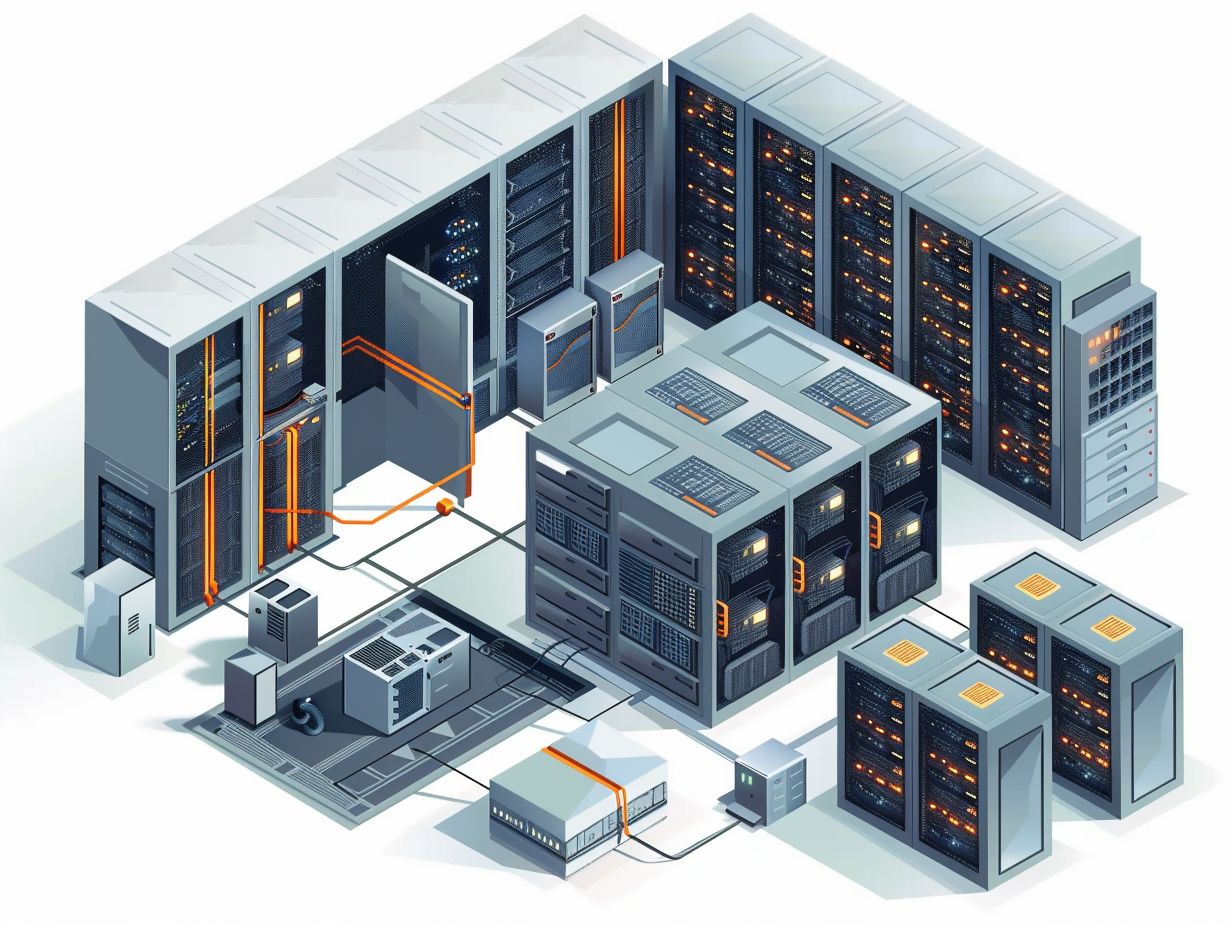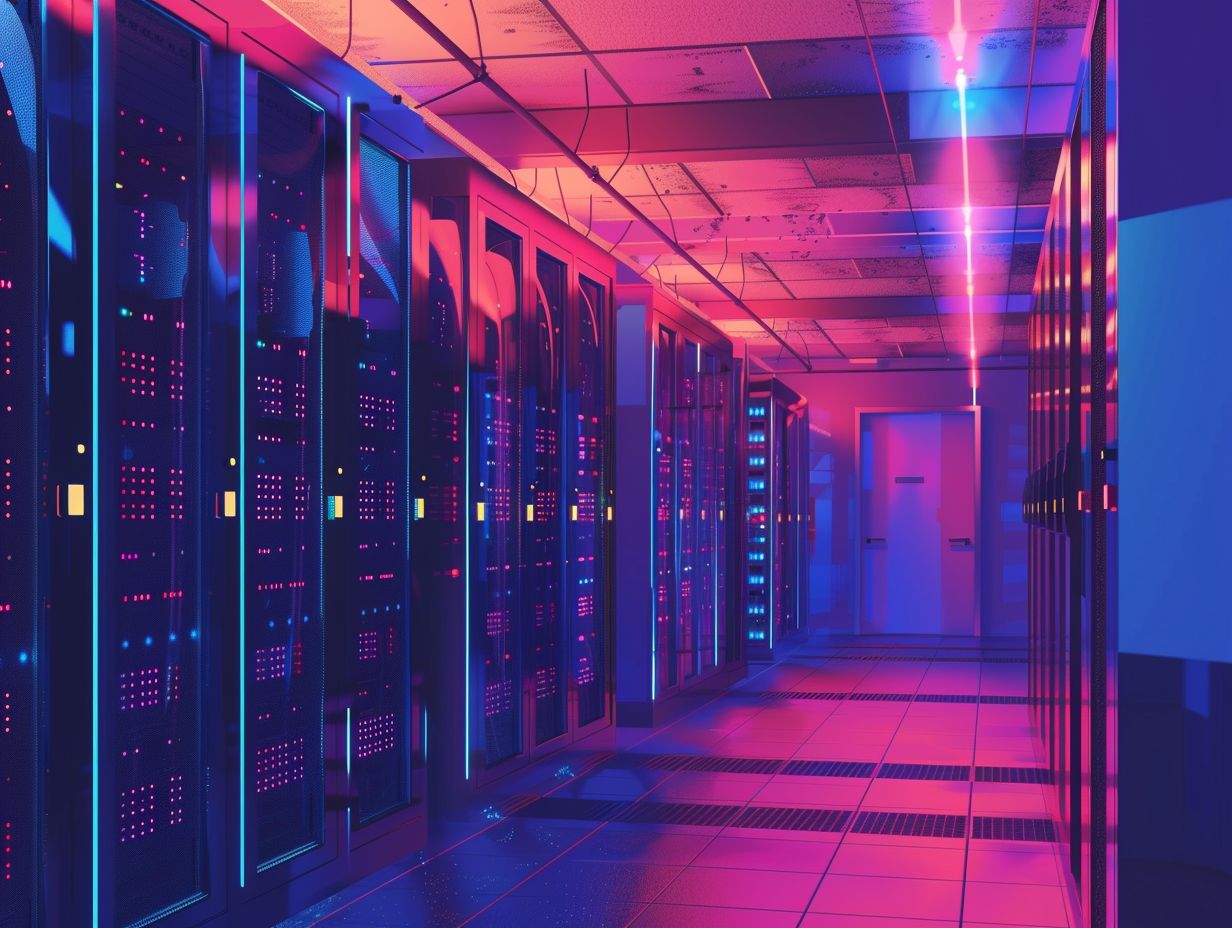Are you aiming to advance your career in the field of data center storage technologies?
Achieving Cisco’s CCNP Data Center certification can assist you in mastering crucial concepts and skills necessary for excelling in this ever-evolving industry.
We will delve into the significance of certification, grasp the various types of data storage, understand Cisco’s methodology towards data center storage, and appreciate the advantages of acquiring Cisco data center storage area network (SAN) fundamentals.
Be sure to stay engaged for valuable insights on exam preparation and strategies for achieving success!
Key Takeaways:

Overview of Certification and Its Importance
Certification plays a crucial role in today’s technology landscape, particularly in the realm of Data Center Storage. Obtaining professional-level certifications such as CCNP validates the expertise of network administrators and engineers in managing and implementing advanced storage technologies.
These certifications, like those offered by Cisco, not only showcase your abilities but also open up a plethora of opportunities in the IT industry, especially within data center infrastructure. For professionals looking to excel in their careers, having certifications related to Data Center Storage is a game-changer. Employers often prioritize candidates who hold such certifications, as they demonstrate a deep understanding of storage systems and the capability to optimize data center operations effectively. Certified individuals gain access to exclusive resources and communities that help them stay updated with the latest trends and advancements in storage technology.
Data Center Storage Technologies
Data Center Storage Technologies comprise a variety of solutions and protocols tailored to enhance storage efficiency, security, and accessibility within Cisco’s Data Center Storage framework. These technologies, ranging from Zoning to Fibre Channel over Ethernet (FCoE) and Fibre Channel over IP (FCoIP), play a vital role in facilitating smooth data access and management.
Understanding Different Types of Data Storage
In the modern Data Center landscape, data storage presents a myriad of options that cater to the ever-evolving needs of network administrators and engineers. From traditional storage architectures to virtualized environments and orchestrated storage solutions, understanding the different types of data storage is essential for effective infrastructure management.
Virtualization technologies play a crucial role in optimizing storage resources within Data Centers, allowing for the efficient utilization of hardware through abstraction and pooling. By leveraging virtualization, you can create virtual storage systems that offer flexibility and scalability. Orchestration solutions further enhance storage management by automating tasks, optimizing performance, and ensuring data availability. The synergy between virtualization and orchestration in the storage realm is transforming how data is stored, managed, and accessed within modern IT infrastructures.
Cisco’s Approach to Data Center Storage
Your approach to Data Center Storage should focus on leveraging cutting-edge technologies and infrastructure solutions offered by Cisco. These solutions are specifically designed to address the requirements of contemporary data environments. If you are an engineer looking to enhance your skills and expertise in Data Center Storage technologies, Cisco provides a comprehensive certification pathway to help you master these technologies.
Overview of Cisco’s Data Center Storage Solutions

Cisco’s Data Center Storage solutions embody innovation and expertise in the field, addressing the dynamic requirements of modern data environments. The solutions, led by experts, cover a diverse range of technologies aimed at enhancing storage performance and efficiency.
You can explore a wide range of technologies from flash storage arrays to hybrid cloud solutions within Cisco’s approach. This includes the integration of cutting-edge advancements like AI-driven analytics and software-defined storage. By utilizing these technologies, Cisco’s Data Center Storage solutions not only fulfill current storage needs but also proactively anticipate future demands.
The seamless integration of hardware and software components underscores Cisco’s dedication to delivering robust and scalable storage solutions capable of adapting to the constantly evolving data environment. In essence, Cisco’s approach represents a forward-thinking strategy that highlights their industry leadership in data center storage solutions.
Mastering Data Center Storage Technologies
Mastering Data Center Storage technologies necessitates a comprehensive comprehension of network infrastructure, virtualization, orchestration, and the seamless integration of storage solutions. Network administrators and engineers need to refine their skills in these domains to proficiently manage and enhance data storage operations.
Key Concepts and Skills to Master
To excel in Data Center Storage management, you must master key concepts and skills. Understanding ACLs, RBAC, logical device separation, and configuration profiles is crucial for efficient and secure storage operations in complex data environments.
Access Control Lists (ACLs) are essential for managing permissions and restrictions within storage systems. They control who can access specific resources and determine the actions they can perform on Cisco’s Data Center Certifications: Mastering Virtualization and Cloud.
Role-Based Access Control (RBAC) is also critical, as it defines user roles and assigns appropriate permissions based on those roles. For a deep dive into mastering Cisco’s data center networking certifications, understanding RBAC is essential.
Logical device separation involves dividing storage resources into distinct logical units for improved organization and management. For more information, check out Cisco’s CCNP Data Center: Mastering Data Center Automation.
Configuration profiles simplify the process by enabling administrators to establish predefined configurations that can be uniformly applied across multiple devices, ensuring consistency and efficiency.
Benefits of CCNP Data Center Certification
Obtaining CCNP Data Center certification offers a wide array of advantages, allowing you to strengthen security protocols, deploy automation techniques, and proficiently oversee data center technologies. This certification acts as a validation of your proficiency in Cisco’s cutting-edge storage solutions.
Career Advancement and Opportunities
Earning a CCNP Data Center certification can provide you with a wealth of career advancement opportunities as an infrastructure engineer. With this certification, you are prepared to take on a variety of roles in the dynamic data center landscape, from deploying applications to managing on-prem infrastructure.
Those who hold this certification excel in positions like network engineers, systems administrators, or cloud architects. They possess the necessary knowledge and skills to design, implement, and troubleshoot complex data center solutions. CCNP Data Center certified professionals often take the lead on infrastructure automation projects, ensuring smooth operations and successful integration of new technologies. Learn more about Cisco’s CCNP Data Center networking.
This certification demonstrates expertise in crucial areas such as virtualization, storage, and networking, making individuals highly desirable candidates for in-demand roles within organizations seeking to enhance their data center environments.
Preparing for the CCNP Data Center Exam

Preparing for the CCNP Data Center exam requires meticulous preparation and a deep understanding of Cisco’s certification requirements. It is crucial to familiarize yourself with the study materials and exam format to succeed in this professional-level assessment.
Study Materials and Exam Format
To effectively prepare for the CCNP Data Center exam, you must leverage appropriate study materials and understand the exam format. Mastery of key topics such as datacenter design, connectivity, management, and monitoring is essential for success in this certification assessment.
Familiarizing yourself with the intricacies of Cisco’s CCNP Data Center: Mastering Data Center Technologies will ensure your ability to construct efficient and scalable infrastructures that meet industry standards. A solid understanding of connectivity protocols and technologies will enable seamless integration and communication within the network environment.
Mastering management practices, such as storage provisioning and virtualization, will optimize resource utilization and enhance datacenter performance. Proficiency in monitoring tools and techniques will equip you to identify and troubleshoot issues promptly, ultimately enhancing overall operational efficiency in data center environments.
Tips for Success on the Exam
Achieving success on the CCNP Data Center exam necessitates strategic planning and thorough preparation. Utilizing expert-led online courses and resources can greatly improve your comprehension of Cisco’s advanced storage technologies, leading the path to certification success.
Effective Study Strategies and Test-Taking Techniques
When preparing for the CCNP Data Center certification, you must implement effective study strategies and master test-taking techniques. It is essential to focus on planning, installation, maintenance, and monitoring skills as these are crucial for a comprehensive understanding of Cisco’s advanced storage technologies.
By refining these foundational skill areas, you will improve your capacity to configure and troubleshoot intricate data center infrastructures efficiently. A thorough knowledge of network virtualization, data storage networking technologies, and automation and orchestration is vital within the context of the CCNP Data Center certification process.
Utilizing practical scenarios and hands-on labs can further enhance your understanding and practical application of the concepts covered in the certification exam. Additionally, keeping abreast of the latest industry trends and best practices is imperative for success in the constantly evolving field of data center technology.
Frequently Asked Questions
What is Cisco’s CCNP Data Center certification?

Cisco’s CCNP Data Center certification is a professional-level certification that validates an individual’s skills and knowledge in designing, implementing, and troubleshooting data center technologies using Cisco products.
What is the focus of the CCNP Data Center: Mastering Data Center Storage Technologies exam?
The CCNP Data Center: Mastering Data Center Storage Technologies exam focuses on testing an individual’s understanding and proficiency in implementing and troubleshooting storage networking technologies in a Cisco data center environment.
What are some of the key topics covered in the CCNP Data Center: Mastering Data Center Storage Technologies exam?
Some of the key topics covered in this exam include storage networking protocols, storage virtualization, storage infrastructure security, data protection, and storage management.
What are the benefits of obtaining the CCNP Data Center: Mastering Data Center Storage Technologies certification?
Earning this certification can enhance your career prospects and salary potential by demonstrating your expertise in data center storage technologies and your ability to work with Cisco products. It also provides a solid foundation for pursuing more advanced certifications in the data center field.
What are the prerequisites for taking the CCNP Data Center: Mastering Data Center Storage Technologies exam?
There are no formal prerequisites for taking this exam, but it is recommended to have a good understanding of basic networking concepts and experience working with Cisco data center technologies.
How can I prepare for the CCNP Data Center: Mastering Data Center Storage Technologies exam?
You can prepare for the exam by taking Cisco’s official training course, reading study materials and practicing with hands-on labs, and using practice exams to assess your knowledge and identify areas for improvement. It is also helpful to have real-world experience working with Cisco data center technologies.
